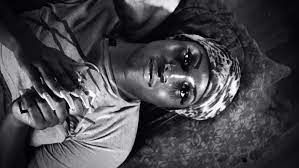146 total views, 1 views today
Kokomo City 2023 Movie Review
D. Smith knows how to make a person stand up and pay attention. From the rollicking opening scene of “Kokomo City” — her luminous documentary portrait of four Black trans sex workers which she shot, edited, and directed — it’s clear the terms are being set by a visionary artist who just happened to funnel her interdisciplinary talents into filmmaking for this particular project. How lucky we are that she found this medium.
“Kokomo City” may be her filmmaking debut, but this songwriter innately understands the rhythms and beats that make compelling cinematic storytelling. You can see it in the staccato contrast of light and dark in her elegant black-and-white photography. You can hear it in the unexpected needle drops and deep-cut tracks, and you can feel it in her lyrical cuts that find small moments of beauty in everyday compositions. Make no mistake, Smith announces wordlessly from behind the camera: I have arrived to change the game.
It would be hard to conjure a better song for a film about sex workers than Randy Crawford’s “Street Life,” which heralds the beginning of “Kokomo City” as the title credits pop in bubbly yellow graphics. But Smith, a two-time Grammy-nominated songwriter and producer, draws on a deep well of musical knowledge to score her film with as much artistry as she gives its cinematography. Many of the tracks are Smith originals, often with her collaborator and producer Stacy Barthe, like the timeless-sounding “Sugar Daddy,” but she makes equal use of lesser-known blues and funk cuts, like the film’s incredible namesake song “Sissy Man Blues” by Kokomo Arnold.
Smith’s music and photography instincts carry the film cinematically, but the real stars of “Kokomo City” are its honest and dynamic subjects. In intimate interviews, Smith often places herself on the ground so the speakers hover above the camera like queens. They speak to her like friends (and maybe they are, so what?), but the familiarity of shared identity and experience creates a riveting shorthand that forces the viewer to keep up — if they want to get the jokes.
Take, for instance, the film’s wild opening anecdote from a young woman named Liyah, who lives and works in Decatur, Georgia. In a story with so many turns it could serve as inspiration for another “Zola,” Liyah explains how she once grabbed a client’s gun and tried to shoot him only to find it wasn’t loaded, tumbled down the stairs in a knockdown struggle, then rescheduled the date for the next night after a friendly explanation cleared everything up. Smith scores the scene like a farce, then a drama, then a thriller, before coming back around to farce, punctuating it with the celebratory thrum of “Street Life.” All in a day’s work.
The women wax poetic on the issues most pressing to them; the pros and cons of passing or living stealth, the hypocrisy of guys who only see them on the down low, and the way they are treated and viewed by cis Black women. Unhindered by the pressure to perform a specific image of Black trans women, they are able to fully be seen and heard as themselves. The film shows these women engaging in the kinds of conversations that usually only occur behind closed doors — certainly not in a mainstream media that demands respectability with its visibility.
There are other vital voices in the film, as well, like a few “trans-attracted” men who agreed to appear in the film. Smith interviews one energetic duo in their car who loudly encourage their less confident brothers: “If you like them, go hard for them…don’t live a double life.” She cuts this passionate sermon with lilting footage of a male ballet dancer, both powerful and graceful in his beauty: The dance of masculinity. Another interview shows a happy couple, a man secure enough in his sexuality to live out loud with the woman he loves. Smith captures him handling her with tenderness and hunger, as gentle curls of smoke pass between their lips.
Smith’s subjects are also free from the pressure to paint everything in rosy hues. “I’m supposed to tell people this shit is cool? This shit is safe? This is survival work. This is risky shit,” says a young woman named Daniella. Her powerful diatribe feels like a wake-up call to the many ways these women have been isolated from their communities. Smith films her in the bath, her expressive face growing ever more defiant against the glistening white tub. There she sits, alone, with no one to witness her unjust pain and righteous brilliance. No one except the camera and, perhaps now, a more empathetic world.
